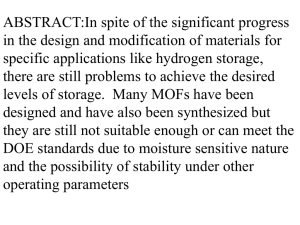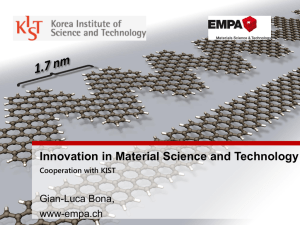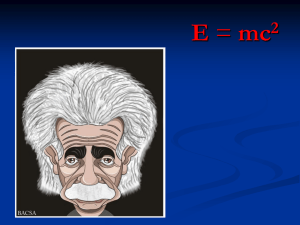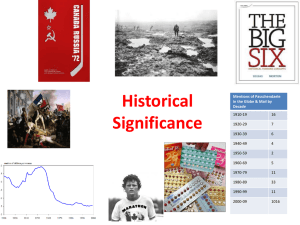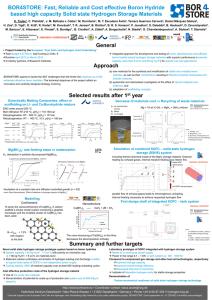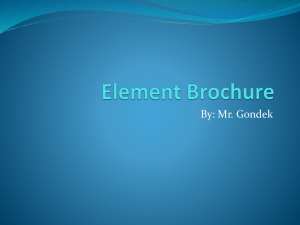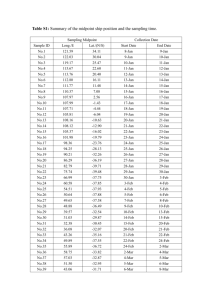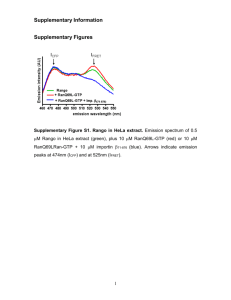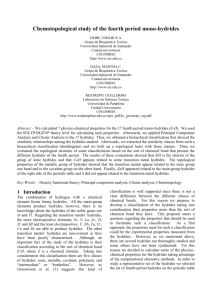Development of metal hydrides for hydrogen compressors
advertisement
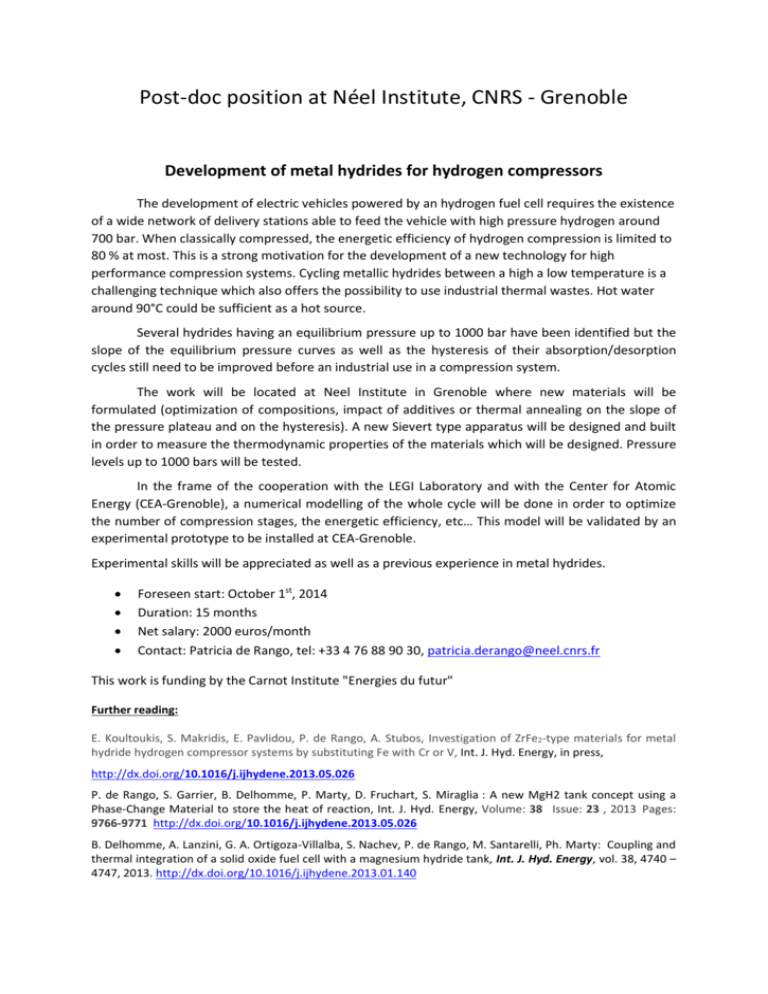
Post-doc position at Néel Institute, CNRS - Grenoble Development of metal hydrides for hydrogen compressors The development of electric vehicles powered by an hydrogen fuel cell requires the existence of a wide network of delivery stations able to feed the vehicle with high pressure hydrogen around 700 bar. When classically compressed, the energetic efficiency of hydrogen compression is limited to 80 % at most. This is a strong motivation for the development of a new technology for high performance compression systems. Cycling metallic hydrides between a high a low temperature is a challenging technique which also offers the possibility to use industrial thermal wastes. Hot water around 90°C could be sufficient as a hot source. Several hydrides having an equilibrium pressure up to 1000 bar have been identified but the slope of the equilibrium pressure curves as well as the hysteresis of their absorption/desorption cycles still need to be improved before an industrial use in a compression system. The work will be located at Neel Institute in Grenoble where new materials will be formulated (optimization of compositions, impact of additives or thermal annealing on the slope of the pressure plateau and on the hysteresis). A new Sievert type apparatus will be designed and built in order to measure the thermodynamic properties of the materials which will be designed. Pressure levels up to 1000 bars will be tested. In the frame of the cooperation with the LEGI Laboratory and with the Center for Atomic Energy (CEA-Grenoble), a numerical modelling of the whole cycle will be done in order to optimize the number of compression stages, the energetic efficiency, etc… This model will be validated by an experimental prototype to be installed at CEA-Grenoble. Experimental skills will be appreciated as well as a previous experience in metal hydrides. Foreseen start: October 1st, 2014 Duration: 15 months Net salary: 2000 euros/month Contact: Patricia de Rango, tel: +33 4 76 88 90 30, patricia.derango@neel.cnrs.fr This work is funding by the Carnot Institute "Energies du futur" Further reading: E. Koultoukis, S. Makridis, E. Pavlidou, P. de Rango, A. Stubos, Investigation of ZrFe2-type materials for metal hydride hydrogen compressor systems by substituting Fe with Cr or V, Int. J. Hyd. Energy, in press, http://dx.doi.org/10.1016/j.ijhydene.2013.05.026 P. de Rango, S. Garrier, B. Delhomme, P. Marty, D. Fruchart, S. Miraglia : A new MgH2 tank concept using a Phase-Change Material to store the heat of reaction, Int. J. Hyd. Energy, Volume: 38 Issue: 23 , 2013 Pages: 9766-9771 http://dx.doi.org/10.1016/j.ijhydene.2013.05.026 B. Delhomme, A. Lanzini, G. A. Ortigoza-Villalba, S. Nachev, P. de Rango, M. Santarelli, Ph. Marty: Coupling and thermal integration of a solid oxide fuel cell with a magnesium hydride tank, Int. J. Hyd. Energy, vol. 38, 4740 – 4747, 2013. http://dx.doi.org/10.1016/j.ijhydene.2013.01.140 Ph. Marty, P. de Rango, B. Delhomme, S. Garrier, Various tools for optimizing large scale magnesium storage, J. Alloys and Compounds, 580 (2013) S324–S328 http://dx.doi.org/10.1016/j.jallcom.2013.02.169 S. Nachev, P. de Rango, B. Delhomme, D. Plante, B. Zawilski, F. Longa, Ph. Marty, D. Fruchart, S. Miraglia, Insitu Dilatometry Measurements of MgH2 Compacted Disks, J. Alloys and Compounds, 580 (2013) S183–S186 http://dx.doi.org/10.1016/j.jallcom.2013.03.098
